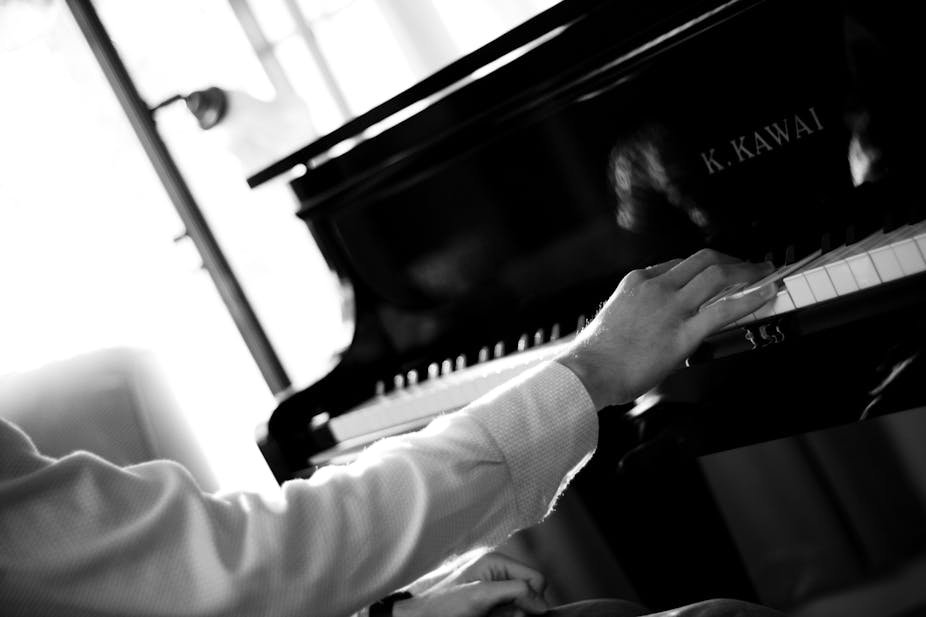News that the Victorian auditor-general will investigate allegations of an endemic cultural of sexual harassment in that state’s hospital system is to be welcomed. Recent comments by a (female) senior surgeon that women were better off to comply with inappropriate requests than report them suggests that there is a serious and embedded culture of complacency and cover-up within the senior ranks of the medical profession.
We may wish to take the grim view that such behaviours are inevitable in all environments where there is an inbuilt power imbalance and the possibility for sexual exploitation (i.e. almost everywhere!). Certain professions, however, seem to be more susceptible to these kinds of behaviours than others, and it is worth exploring why that might be so.
Another profession that has been in the spotlight for all the wrong reasons of late is classical music education. The case of Philip Pickett, a teaching professor at the Guildhall School of Music and Drama in London who was recently jailed for 11 years for sex attacks on several of his pupils, led to a landmark opinion piece in The Times by leading music critic Richard Morrison suggesting England’s elite music training institutions have similarly avoided tacking the underlying cultures that have made them particularly vulnerable to this kind of abusive behaviour.
He pointed to two issues in particular. The first was the risks associated with the much-vaunted (and much-defended) one-to-one, or mentor-protégé, teaching regime. A bond can arise that is:
too intimate, too physical. The vast majority of tutors don’t abuse it, but that’s not the point.
The second aspect is perhaps one shared more overtly with the medical profession, and that is its intensely competitive nature. Formal or informal gatekeepers to elite careers, like individual conductors, or consultant surgeons, can have unusual sway over the fate of a young person trying to establish a career.
In classical music training these problems are amplified by the very nature of the art form, one in which “transcendent” values of individual artistic heroism are promoted as part of its very core. Performer and academic Ian Pace, who has been a leading advocate for an enquiry into abuse in the UK’s music schools, argued in an article in the Times Educational Supplement in 2013 that:
It can lead to the cultivation of entourages of adoring young students to be moulded into quasi-clones of the great guru, as extensions of his or her ego. Sometimes, students who do not conform to these teachers’ expectations can be the subject of jealous resentment leading to callous cruelty through attempts to destroy their confidence. They dissect and amplify the student’s every fault while ignoring their strengths, sometimes in order to humiliate them in front of others.
Music teaching institutions in Australia as in the UK have provided, whether consciously or not, protection and succour for such behaviour. Here, the wielding of “soft” power is key to silencing dissent, a quietly acknowledged rule that “trouble-makers” are liable to find their job opportunities after leaving to be severely limited. The music profession is powered in no small part by social capital; the risk of reputational damage for a young musician is no mere bagatelle.
What, in music education at least, can we do to address the problem? We need to promote both a strong ethical culture but also a degree of external regulation. The latter is necessary because, as Pace has argued in a recent blog post:
In the classical music profession as a whole, patronage is held by so few people in a manner which is in no sense transparent or open to criticism. There is no way of holding people to account […] There are so many informal networks that it is eminently corruptible. I know [external regulation] would not be popular, but think it necessary.
The unfolding scandals in our schools, churches, spiritual communities, hospitals, military colleges, and (in the UK) the BBC, show the limits of self-regulation. Time and time again we have seen how an institution’s first response to abusive behaviour is self-protection, not the protection of the vulnerable individuals in its care.
Any attempt to impose or legislate good behaviour is, however, fraught with difficulties and the risk of unintended negative consequences, something that Pace also acknowledges. We certainly do not want to end up with a workplace environment that that presumes any kind of unwelcome advance is assault or abuse.
Ultimately, root and branch cultural change is what is required, not just a new, and enforceable, “code of conduct”. This will require strong, principled, leadership, not just strong legislation. It will also need to recognise that abusive behaviours in music schools come in many forms; these can be pedagogical, financial, and psychological in nature, as well as sexual.
As I have argued elsewhere, one broad (but I think powerful) cultural change we could institute right now is to recalibrate what we mean by “musical excellence”, as both a pedagogical goal and a standard of behaviour. What’s the point of being a great musician if it comes at the cost of a life well lived, or supports a society not worth living in? Or, as a commentator on the Pickett conviction put it recently:
Human first, musician/artist/creative genius after.
Whatever we do, we need to act now. The alternative, as Morrison concluded, would be “unforgivably complacent”.

